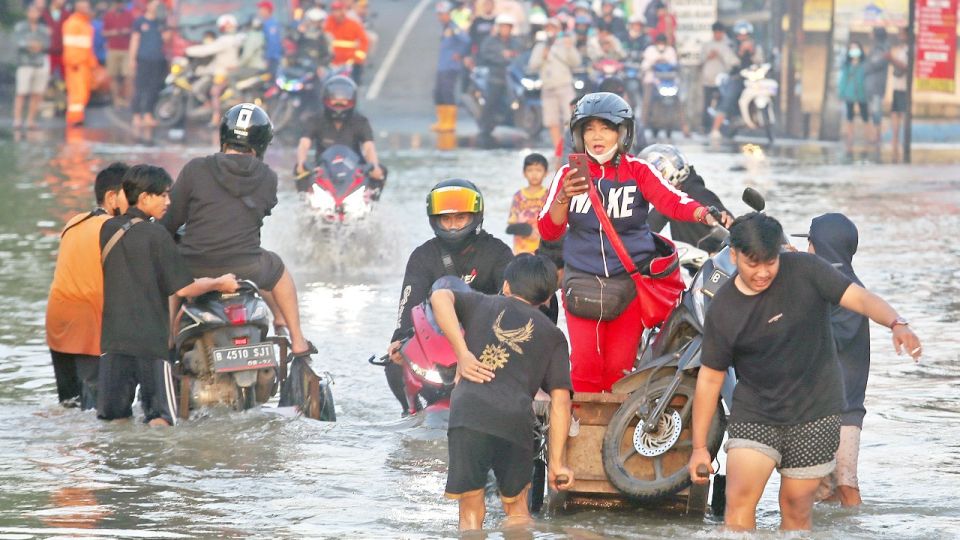September 14, 2022
JAKARTA – The Meteorology, Climatology and Geophysics Agency (BMKG) has issued thunderstorm warnings for this week, following days of torrential downpours that have flooded a number of neighborhoods in Greater Jakarta.
In an online statement on Monday, the BMKG raised the alert status of several provinces from level 1 to level 2 – waspada (advisory) – in anticipation of hydrometeorological disasters, including floods and flash floods, until at least Wednesday.
The provinces include North and South Sumatra, Jambi and Lampung in Sumatra; Jakarta, West Java and Banten in Java; West, Central, East and North Kalimantan, along with nine other provinces in Sulawesi and Papua.
The agency noted that heavy rains could cause flooding in some or all of those regions.
Separately, the BMKG noted that seven provinces in Sumatra, three provinces in Java – Banten, West Java and Central Java – as well as four provinces in Kalimantan, would likely experience thunderstorms.
Meanwhile, Jakarta, along with West Nusa Tenggara and West Kalimantan, would likely only see moderate rains, but they could be accompanied by lightning and strong winds.
The BMKG’s weather warning follows a series of heavy downpours over the weekend. In the Tangerang and South Tangerang regencies, for instance, heavy rains forced authorities to close the Pondok Aren–Serpong Toll Road on Saturday.
Speaking at a televised briefing on Monday, Abdul Muhari, spokesman for the country’s National Disaster Mitigation Agency (BNPB), said some 37 natural disasters had occurred in the country over the past week due to heavy rains.
They had forced more than 24,000 Indonesians to take shelter outside of their homes.
“We are urging regional administrations […] to prepare anticipation and mitigation steps,” Abdul said.
He also urged Indonesians who lived on floodplains or close to rivers, as well as for those living on cliffsides, to take precautionary measures and take shelter in safer places in the event of an especially heavy downpour.
“[It is important for people to] make it a habit of looking at weather forecasts, such as before commuting to the office […]. We must get used to looking at weather information, paying attention to our surroundings and [preemptive] self-evacuation,” Abdul added.


